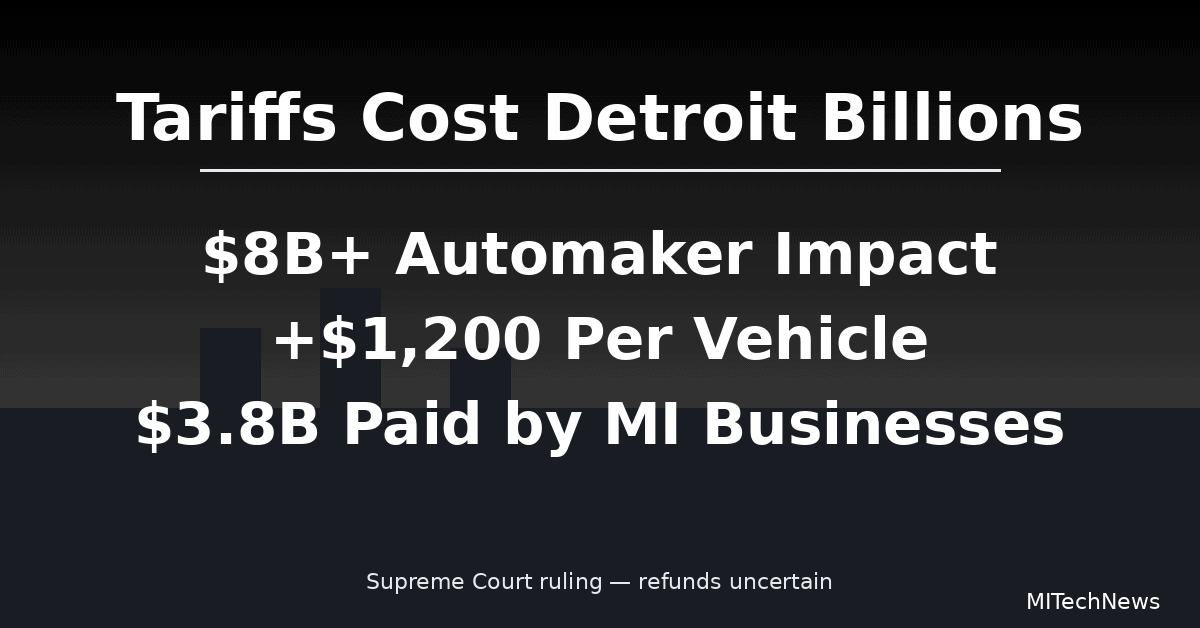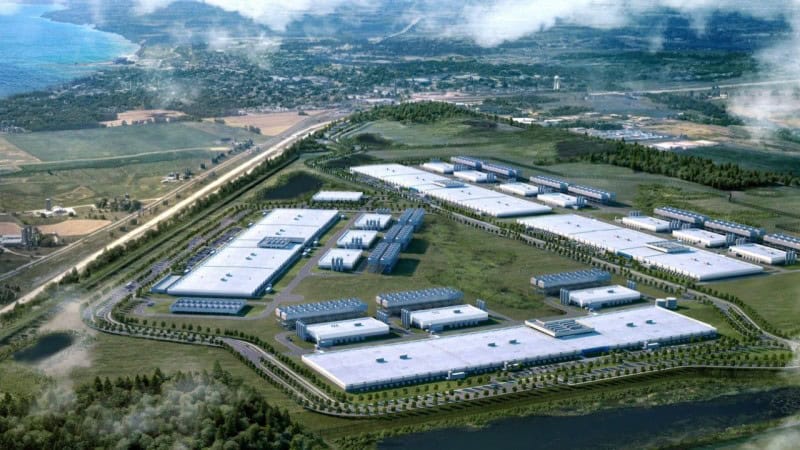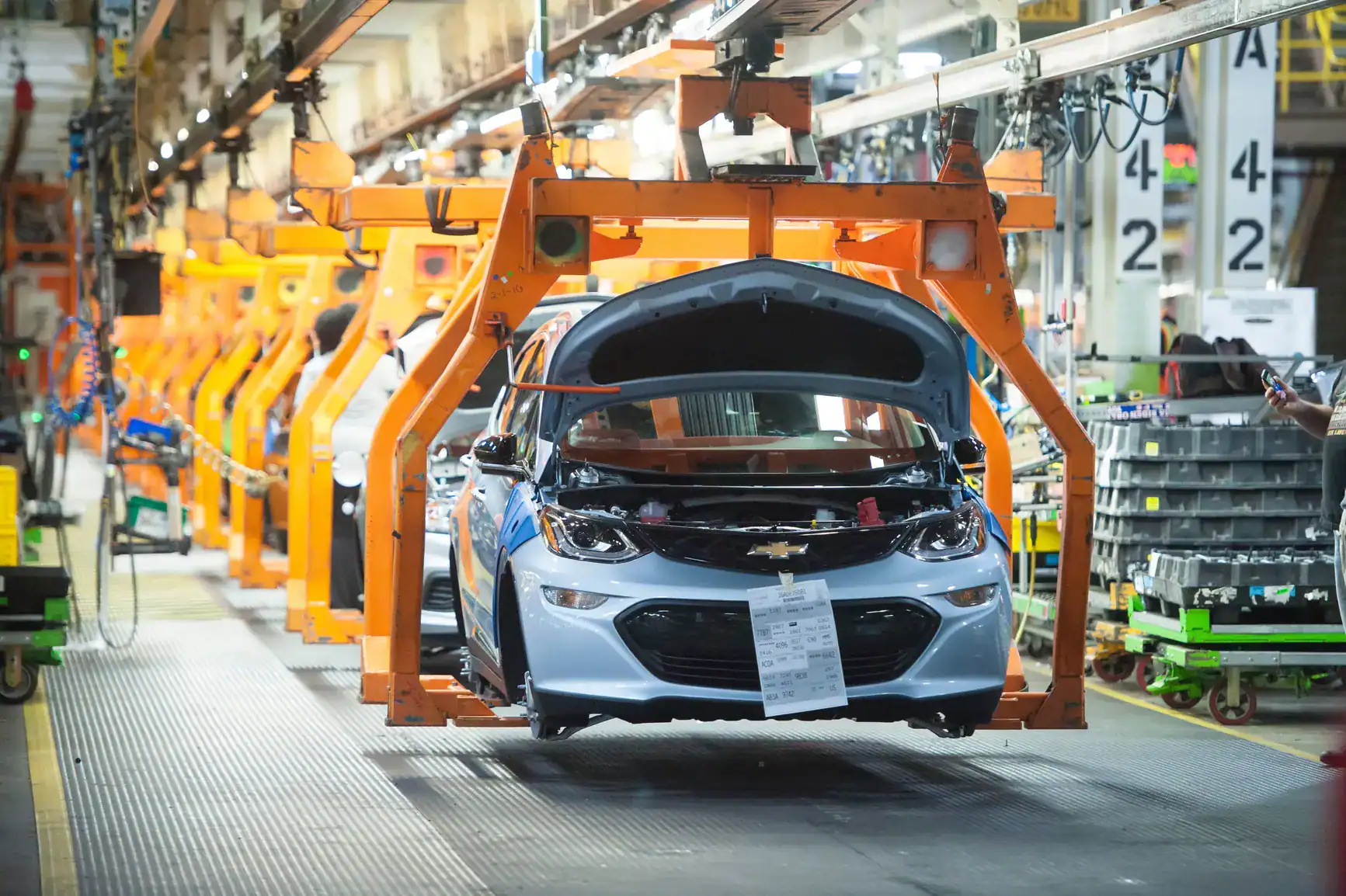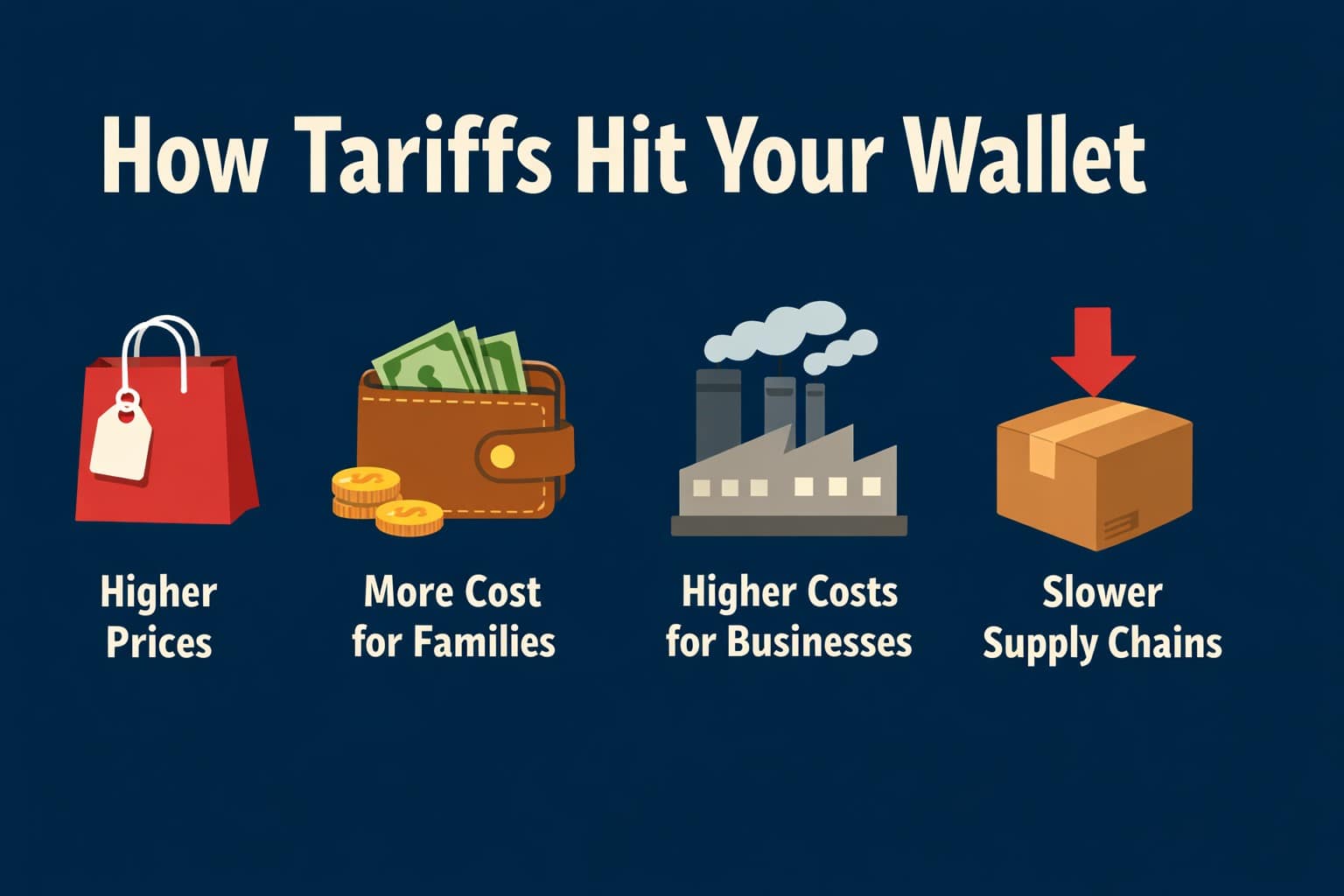DETROIT – Through exclusive interviews and detailed analysis we explore innovative approaches to smart manufacturing focusing on the integration of Internet of Things (IoT), Artificial Intelligence (AI), and other cutting-edge technologies. These Michigan Manufacturing Industry 4.0 strategies enhance operational efficiency and quality, positioning these companies as leaders in the evolving auto industry landscape.
The Fourth Industrial Revolution: A Michigan Perspective
In the first three parts of this five-part series MITechNews.Com explored the Fourth Industrial Revolution – Michigan Manufacturers Need to Get on Board or Get Left Behind. The second on how Original Equipment Manufacturer General Motors Embraces Industry 4.0 Technologies to Improve Efficiencies Cut Costs. The third how Tier 1 suppliers Yazaki North America and Astemo are Leading the Industry 4.0 Revolution.
In the fourth story we report on how the Michigan Manufacturing Technology Center in Plymouth and LIFT in Detroit evaluate the various I4.0 technologies for suppliers so they can recommend exactly what each manufacturer needs to purchase to make them more technologically advanced. The Center’s focus is on small to medium manufacturers with fewer than 500 employees. The sweet spot are those manufacturers with 25 to 250 employees and revenue from $5 million to $25 million. LIFT focuses on Department of Defense national manufacturing as well as working closely with Michigan’s rapidly growing aerospace manufacturing industry.
What is Industry 4.0 Technology?
- Internet of Things: Connecting physical devices and systems to the Internet to collect and exchange data.
- Big Data and Analytics: Analyzing large volumes of data to extract meaningful insights for decision-making and process optimization.
- Artificial Intelligence and Machine Learning: Using algorithms and models to enable machines to learn and make decisions improving efficiency and performance.
- Cloud Computing: Storing and accessing data and applications over the Internet rather than on local servers and hardware.
- Cyber-Physical Systems: Integrating computational and physical processes to improve monitoring and control.
- Augmented Reality and Virtual Reality: Enhancing real-world environments with computer-generated information and creating immersive virtual experiences.
- 3D Printing: Building objects layer by layer from digital models allowing for more flexibility in design and production.
- Robotics and Automation: Using robots and automated systems to perform tasks increasing efficiency and precision.
- Blockchain: Providing a secure and transparent way to record and verify transactions in supply chains and other processes.
- Digital Twin: Creating virtual replicas of physical objects, systems, or processes to monitor, analyze, and optimize performance at the component level.
- 5G Technology: Enabling faster and more reliable communication between devices supporting the increasing connectivity demands of Industry 4.0.
- Edge Computing: Processing data closer to the source rather than relying solely on centralized cloud servers, improving real-time processing and reducing latency as part of AI.
Role of Michigan Manufacturing Technology Center
The Michigan Manufacturing Technology Center is a catalyst for innovation and growth empowering Michigan manufacturers to work smarter, compete fiercely, and achieve remarkable success. With personalized consulting services, the Center transforms traditional operations into cutting-edge powerhouses ensuring that Michigan manufacturers not only survive but thrive in today’s competitive landscape.
Initial Assessment and Strategy Development
The Center President Ingrid Tighe said her group starts with a baseline assessment of each Tier 2 supplier, like a doctor diagnosing a patient.
“What are their strengths and where are the gaps,” she said. “We also ascertain what is the client trying to get from its strategies and goals. What are its pain points and pressure points that a plant manager is experiencing. From that we can get to best recommendations for implementing the strategy.”
Identifying and Addressing Pain Points
Tighe said the pain points could be foundational. The Center staff look at quality, lean manufacturing then examine what technology can solve these problems. “We meet them where they are and go from there,” she said.
“Then we have conversation assessment and hit on these points. What is the client hoping to get, what is its strategy and goals, and how advances in I4.0 can help them. We also suggest best recommendations for implementing further technology,” Tighe added.
Core Services and Technological Integration
She said The Center works primarily on developing for its hundreds of clients each year lean manufacturing, 6 Sigma, quality, and leadership. I4.0 then is layered on top of this foundation. The Center also hosts classes that involve a technology conversation as a component based on the person or consultant’s technological expertise.
Understanding Client Needs
“The majority have an idea level of familiarity with Industry 4.0, but the knowledge runs the spectrum,” Tighe said. “Sometimes our clients come to the table thinking they need something that they may not. A stamping plant is different from a fastener manufacturer. It’s not a one-size-fits-all.”
She said one company may have a workforce shortage. And for this client, a cobot could help by taking the spot of a low-skilled worker. Another company may need to use software to aggregate all its different assembly lines. Tighe said the problems are similar in all groups, whether they manufacture auto parts, furniture, or any other products.
Common Challenges in Industry 4.0 Adoption
“You walk into a company and a lot of people are not sure on the options for technology they can implement,” she said. “That’s a big thing. Not knowing what they don’t know. We try to make them understand what their issues and what options are we can help them implement to address those issues.”
Funding and State Support
“If the state could provide manufacturers with more money to buy technology that would make each more efficient it would be a big help,” Tighe said, echoing the sentiment expressed by all the other manufacturers interviewed for this series. The Center would welcome more state funding as well.
“More money can make a bigger dent in the problem,” she said. The Center has a workforce of 75 which also includes administrative support. Only 25 manufacturing experts are on staff to serve the 12,000 manufacturers of all kinds in Michigan.
Proposed Solutions for Technology Access
Some people interviewed for this series suggested the state keep a stockpile of I4.0 technologies to sell directly to manufacturers. Tighe said she would not recommend the state do that. She said it would be better for groups like The Center to consign technologies for manufacturers to try out to make sure it fixes their problems before they buy the equipment or software. Try before you buy.
LIFT: A Technological Showcase for Michigan Manufacturing Industry 4.0
While The Center introduces manufacturers to available I4.0 technologies, LIFT is where they come to see these technologies in action, said spokesman Joe Steele. LIFT offers training in welding, CNC machines, industrial technology, and maintenance. The Detroit facility offers 100,000 square feet in its “technology showcase and sandbox,” Steele said.
Technology Showcase and Sandbox
“The showcase is the art of the possible and the sandbox is working on projects on behalf of the Department of Defense and industry,” he said. “Advanced materials, manufacturing processing, and systems engineering is our focus, both virtual and physical.”
Hands-On Experience and Training
Steele said people learn from The Center what Industry 4.0 technologies are available, but they come to LIFT to see those technologies in action. LIFT also provides training in welding, CNC Machine skills, industrial technology, and maintenance.
Technology Acceleration and Commercialization
“We work as a technology accelerator. The next step is we work in manufacturing readiness levels 4 through 7. We take those ideas that have legs and accelerate them into commercialization.”
Focus on Advanced Materials and Systems Engineering
Steele added that advanced materials, manufacturing processing, and systems engineering is LIFT’s focus, both virtual and physical. The virtual work, Steele said, is modeling a material before the physical prototype is built and the money is spent.
Client Needs and Support
“Most of our clients believe they are working in I4.0, but they need help from us and MMTC to understand how to advance themselves going forward.”
Siemens and Digitization Initiatives
LIFT has a gig installation from Siemens that showcases what I4.0, automation, and digitalization using small electric vehicles as a test article and follow it all the way through to see what it looks like. He said they come to LIFT to see I4.0 in action and learn from the in-house partners and experts.
Educational Collaboration
“The train has left the station and those farther down the supply chains that make parts for manufacturing don’t have time or expertise to figure out what they need to know to get on board with cobots, automation, and digitalization,” Steele said. “That’s why LIFT is working with the MEDC and MMTC to help educate manufacturers on how they can get on board and where they can get on board.”
Step-by-Step Guidance
“How do you eat an elephant? One bite at a time,” Steele said. “They know they need to get on board. They need to know where and how much it costs to get the equipment or software they need. If we can use LIFT to showcase what is available, they won’t get left behind.”
Partnership with Siemens
LIFT works with Siemens digital industry experts, he said. Siemens is staffing a lot of young engineers and bringing them to an area where customers around the world showcase technology. Helps us as a non-profit National Defense partner.
Focus on Aerospace and Defense
Steele said the Defense Department and aerospace companies like Boeing are their largest target group. LIFT is heavily invested in developing advanced hyperspace materials for vehicles that fly 5,000 miles per hour. Steel also said the software side is a big focus for aerospace manufacturers.
Comparison of Aerospace and Automotive Adoption
Aerospace manufacturers are embracing I4.0 more than auto manufacturers, Steele said. Raytheon, Boeing, and Lockheed have been partners with LIFT since day one focusing on light weighting and advanced materials.
“They develop lower volumes than autos and look at processing a different way as well as using new materials in a new way. Making 5 or 6 of something vs tens of thousands so they may be able to experiment with manufacturing.”
Strategic Priority of Hypersonic Technology
DOD has hypersonic as No. 1 strategic priority to surpass the rest of the world, Steele said. How to make those vehicles and with what materials? Once LIFT cracks that problem, they can figure out the characteristics of new materials.
“It used to be engineers would look up materials in a book. Now the advent of different materials and processes means we need to understand in a virtual space how these materials work. The problem is engineers don’t all talk to each other. If we can predict in advance how materials perform, we can accelerate manufacturing around the country.”
Michigan Manufacturing Industry 4.0 Driving the Future
As Michigan Manufacturing Industry 4.0 continues to navigate the Fourth Industrial Revolution, both the Michigan Manufacturing Technology Center and LIFT play pivotal roles in guiding manufacturers through this transformative era. By offering personalized consulting, hands-on training, and showcasing cutting-edge technologies, these organizations ensure that Michigan’s manufacturers not only keep pace with Industry 4.0 advancements but also lead the way in innovation and efficiency.
With a strong focus on practical application and strategic support, they help manufacturers overcome common challenges, understand the potential of new technologies, and ultimately thrive in a highly competitive landscape. As Michigan Manufacturing Industry 4.0 evolves, the collaborative efforts between these centers and manufacturers will be crucial in driving the state’s manufacturing sector forward.







